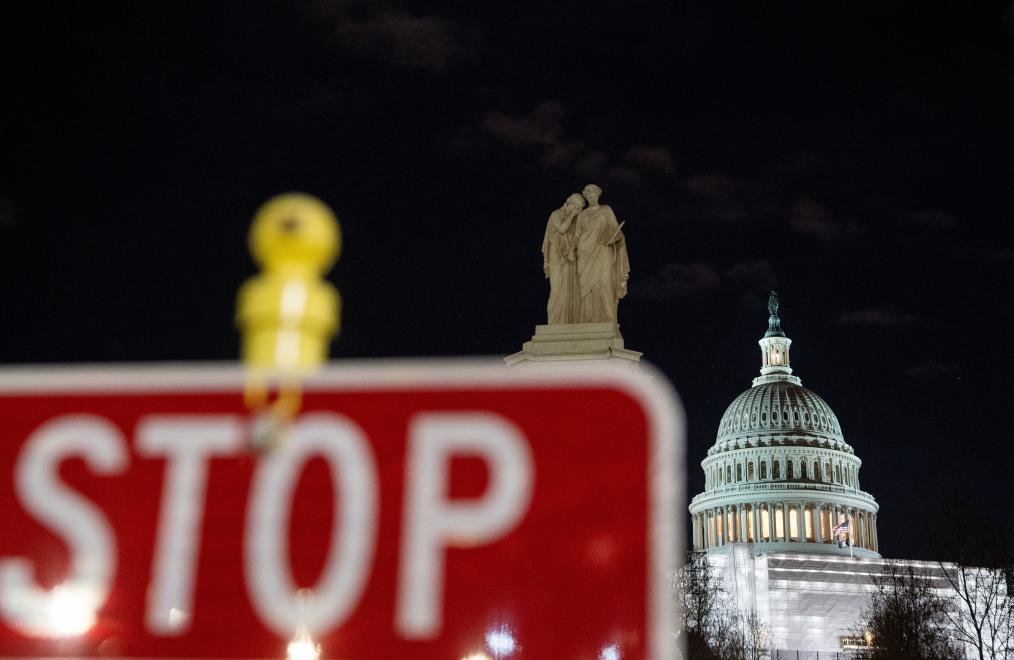
On October 9 local time, the US Senate once again failed to pass the temporary appropriation bill, marking the official 10th day of the federal government shutdown. The political paralysis that began on October 1st has forced about 800,000 federal employees to take unpaid leave or work for free, with the public service system on the verge of collapse, while the capital market has shown a strange boom.
The trigger for this shutdown was the sharp confrontation between the two parties over the subsidy issue of the Affordable Care Act. The Democratic Party insists on including the subsidy extension clause in the appropriation bill, while the Republican Party advocates passing a "clean" bill and discussing healthcare later. The Senate still failed to break the deadlock in the seventh round of voting on the 9th, with neither side's proposal reaching the procedural threshold of 60 votes.
The relationship between the White House and Congress has also remained tense. The Trump administration was exposed for planning to divert between 12 billion and 13 billion US dollars from the Department of Agriculture to subsidize farmers, but was forced to postpone the plan due to the shutdown. The position in the White House memo that "federal employees have no right to demand back pay" has even overturned decades of practice. There is a divergence within the Republican Party over this. Some lawmakers are worried that large-scale layoffs will bring political risks, forcing the White House to postpone the original layoff plan for early October.
The most direct impact of the shutdown on the economy is the cessation of operation of key statistical institutions. The US Department of Labor has suspended the release of data such as the non-farm payroll report and the consumer price index. As Gregory Dako, chief economist at Ernst & Young, put it, the market is like "flying blindly in thick fog".
Despite Goldman Sachs 'estimate that the shutdown would slow economic growth by 0.15 to 0.2 percentage points each week (resulting in a loss of about 7 billion US dollars), the US stock market defied the trend and strengthened. On October 9th, both the S&P 500 index and the Nasdaq Composite Index hit record highs, with technology stocks leading the gains. This divergence highlights that the market is still betting on a compromise between the two parties in the short term, and the expectation of the Federal Reserve cutting interest rates also provides support - the minutes of the September meeting showed that most officials expected at least two more rate cuts by the end of the year.
The field of people's livelihood has become a "disaster area" that has come to a standstill. The Federal Aviation Administration of the United States reported that due to a shortage of air traffic controllers, severe delays occurred at major hubs. The shortage of staff at the Transportation Security Administration has even led to the paralysis of security checks at some airports.
The tourism industry loses up to 1 billion US dollars every week, the daily ticket revenue of national parks evaporates by 1 million US dollars, and the surrounding businesses lose 77 million US dollars. Jpmorgan Chase has warned that if the shutdown persists until November, "millions of Americans' Thanksgiving holidays could be ruined." What is more serious is that the Women, infants and Children's nutrition assistance program is at risk of being disrupted, further undermining consumer confidence.
This shutdown has exposed the deep rifts in the American political system. According to data from the forecasting market Polymarket, the probability that the government shutdown will last beyond October 14th is as high as 71%. A Pew survey shows that only 22% of the people still trust the federal government, and 41% even believe that the United States is no longer a democratic country.
Ironically, when New York Fed President Williams emphasized "supporting further interest rate cuts to guard against job market risks", the Fed's policy toolkit had to be frequently used to offset the economic cost of the political deadlock. The ultimate cost of this man-made crisis is being silently borne by ordinary people - just as a New York citizen's mortgage is overdue due to salary suspension, while political elites are still blaming each other in the Washington Chamber.
John Williams, president of the Federal Reserve Bank of New York, has recently expressed his support for further interest rate cuts, attempting to provide a buffer for the job market. However, if the political deadlock persists, any monetary easing will only be a temporary pain pill - after all, the Federal Reserve can cut interest rates, but it cannot pass the appropriations bill for Congress.

報告顯示,中國電力投資加速增長,預計2024年電網基建投資將超過5300億元。
近日,市場迎來了一則引人注目的消息:工業巨頭3M公司(MMM.N)在本周五公布了其季度業績報告,隨後股價飆升至近兩年來的
最近,外媒給OpenAI算了筆賬,今年可能要血虧50億美元。
近日,巴黎奧運會和世界鐵人三項協會聯合發布了一項重大決定,宣布因塞納河水質污染問題,原定於近期進行的奧運會鐵人三項首次下
當地時間7月18日,法國巴黎發生了一起令人震驚的持刀襲警事件。
近期,一則重大消息在國際舞臺上引起軒然大波,馬來西亞宣布加入金磚國家。
調查發現,互聯網和智能手機的使用幹擾了韓國近五分之一學生的生活。